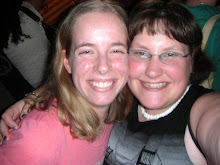 The current Walt Disney World College Program is hardly recognizable from the College Program of old. Though the age requirement of at least 18 years has not changed, a great deal more has. Back when the program first came into existence, in 1981, it was called "The Magic Kingdom College Program" simply because the only positions available were those at Magic Kingdom. Later on, in 1983, participants could also work at EPCOT which lead to the program changing its name to "The Walt Disney World College Program". At the start of its life, there were only a little more than 200 students from just 20 schools. When the program expanded with EPCOT it grew to about 500 college students, & as of 2005, it was up to 8,000 student interns each year, with about 4,000 students participating at any one time. At that time, over 300 colleges & universities were sending students into the program with any & all majors welcome to participate. The living quarters of the program have also changed rather dramatically throughout its history. At its inception, until 1988, members of the program lived in mobile homes off-site called "Snow White Village Compound" & later moved to Vista Way which was, & still is, just outside the Walt Disney World Resort property. Along with the 1990s came tremendous growth in the program including the addition of 3 more apartment complexes. And as word of the program spread over the Internet, it physically grew as well & continues to do so today. Fall 2004 introduced the Disneyland program added to the Disney World program & came to be called "The Disney Theme Parks & Resorts College Program". But, believe it or not, the name changed yet again to what it is today, "The Disney College Program".
The current Walt Disney World College Program is hardly recognizable from the College Program of old. Though the age requirement of at least 18 years has not changed, a great deal more has. Back when the program first came into existence, in 1981, it was called "The Magic Kingdom College Program" simply because the only positions available were those at Magic Kingdom. Later on, in 1983, participants could also work at EPCOT which lead to the program changing its name to "The Walt Disney World College Program". At the start of its life, there were only a little more than 200 students from just 20 schools. When the program expanded with EPCOT it grew to about 500 college students, & as of 2005, it was up to 8,000 student interns each year, with about 4,000 students participating at any one time. At that time, over 300 colleges & universities were sending students into the program with any & all majors welcome to participate. The living quarters of the program have also changed rather dramatically throughout its history. At its inception, until 1988, members of the program lived in mobile homes off-site called "Snow White Village Compound" & later moved to Vista Way which was, & still is, just outside the Walt Disney World Resort property. Along with the 1990s came tremendous growth in the program including the addition of 3 more apartment complexes. And as word of the program spread over the Internet, it physically grew as well & continues to do so today. Fall 2004 introduced the Disneyland program added to the Disney World program & came to be called "The Disney Theme Parks & Resorts College Program". But, believe it or not, the name changed yet again to what it is today, "The Disney College Program".Of course, the College Program is far more than just a great name & a set of nice apartment complexes; there is a very important application process which leads to participation in the program. Applicants may first choose to apply to one of several sessions/seasons of a few different lengths, with Culinary students on a separate schedule. (The average length of any one of the programs is between five to seven months.) To begin applying, students must attend an informational presentation in person, most likely at their own university, or watch a similar version of the same presentation online at a more convenient time. The next step (& personally my least favorite) is to take a "web-based interview" which is quite hard to explain for those who've never seen or done one. Once that test is passed a phone interview must be scheduled that gives Disney a much better idea of who its applicants are. At that time, they will discuss which program session works best & the roles they prefer. If Character Performer is one of their choices, the student must then decide on an available time & place they can audition once they are accepted into the program. After that, if all goes well, the student will receive an acceptance e-mail & also a letter in the mail with information about their next steps.
Focusing on the program itself & what is a part of it, interns have more than just the opportunity to work for Disney. When the program kicked off in the early '80s, it emphasized three different "experiences": "The Learning Experience" is now simply "Learning"; "The Work Experience" is now called "Earning"; & "The Recreational Experience" is now just "Living". Since all three parts have been discussed in more detail in previous posts that does not need to be done here, but this is the place for a brief summary of each. For "Living", students can choose to stay in any one of the program's three housing complexes which are Vista Way, Chatham Square, & Patterson Court; The Commons is reserved for international students. "Learning" is the most complex portion of the program & remains optional for participants. It has always been a part of the Disney College Program & can certainly be quite beneficial. Students are given a different perspective on education & on working, in general, compared to how life would be outside of Disney. In the beginning, there used to be nine single sessions or seminars focusing on the "philosophies & operational practices" of the Walt Disney World Resort. Now there are a number of different educational courses, some of which are like regular, formal school classes & some of which are more laid back, fun classes (though they can all be enjoyable). Really, there are a multitude of opportunities for any student who wants to get an education while working for such a well-known & respected company. There is also the option to receive internship credit from participating schools for those students who are interested.
So what is it about the program that causes people to return, sometimes more than once? Honestly, one almost has to experience it to actually understand its true appeal. Disney thanks its college alumni by giving them the opportunity to come back for the Summer Alumni Program. If students desire to move up within the Company, though, they can choose to become a Professional Intern but must have a major to go along with it. Some of these internships require prior experience in the regular College Program & others do not. For those alumni who want to stay "in touch" with the program & keep informed of what is going on at Disney, there is an email newsletter they should find interesting. The newsletter began through the U.S. mail in the early '90s & was started by John Best & Jeffrey Rudeen. At the time there were two newsletters, with one focusing on Disney parks & resorts news & the other focusing on just College Program news.
Though some have criticized the program for requiring too much work from its interns for too little pay, it hardly seems valid since a great many internships are not paid at all, strictly volunteer work. And, clearly, enough students do not see it as unfair because it grows more popular (& competitive) each year. The program is not meant to be a great source of income but a learning experience overall. It is one that current students want to tell their friends about & make them wish they could work for The Mouse too.
~Steph :)




No comments:
Post a Comment